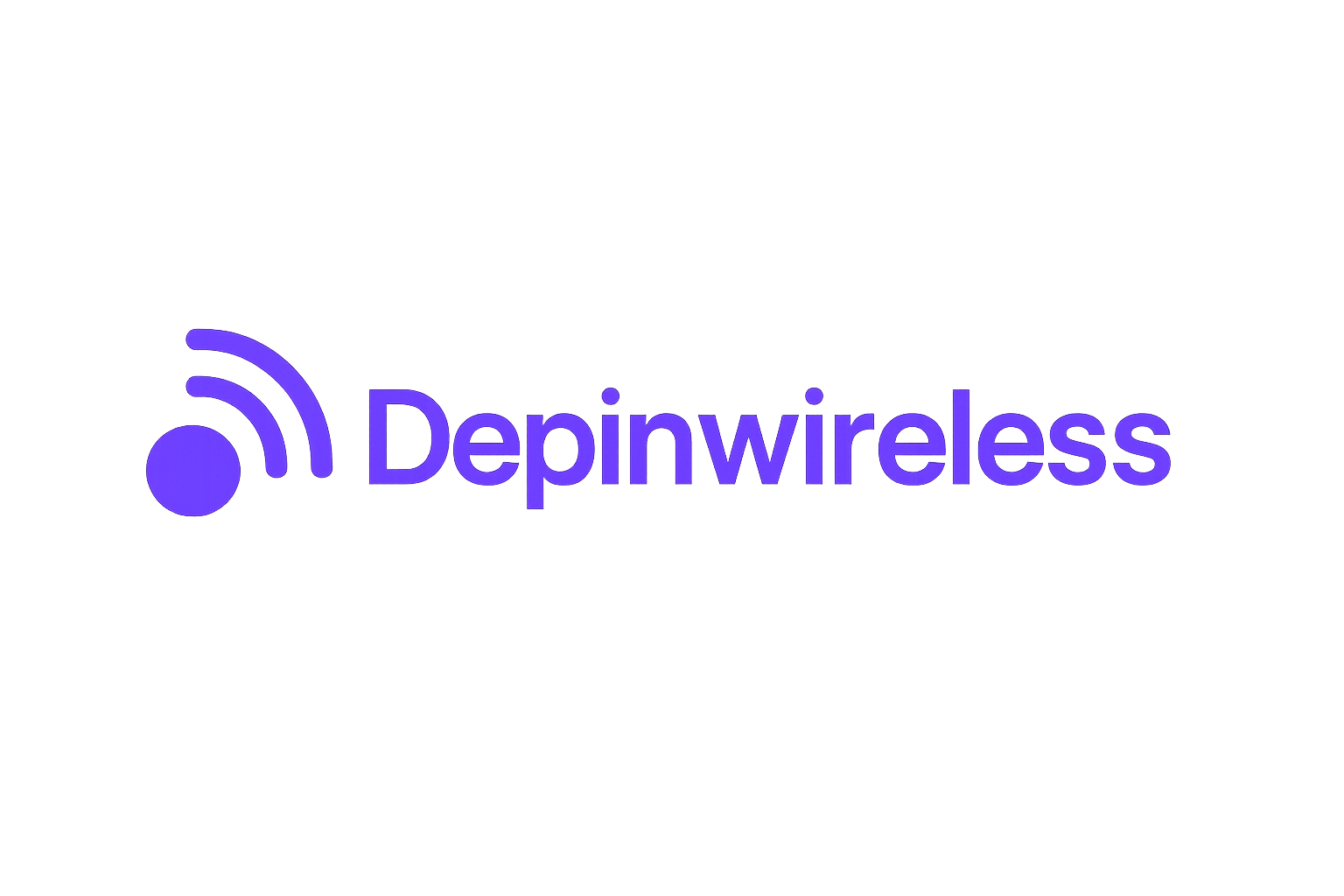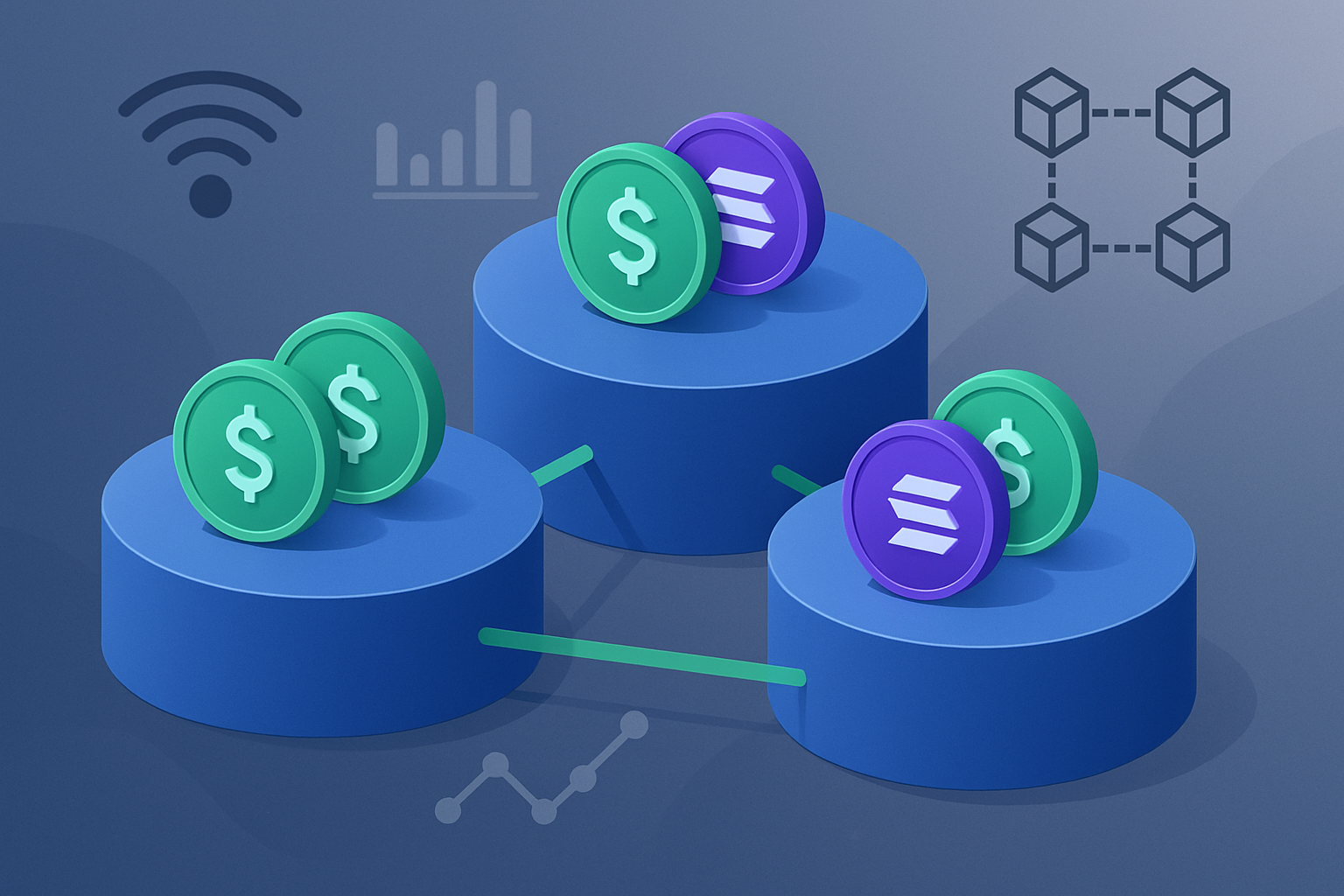
For decades, unused WiFi bandwidth has quietly sat idle in homes and businesses, a wasted resource in a world where millions still lack affordable, high-quality internet. DAWN, a decentralized broadband network built on Solana, is rewriting this story. By transforming surplus bandwidth into a community asset, DAWN is unlocking a new model for peer-to-peer broadband, one that rewards contributors and bypasses legacy Internet service provider monopolies. In 2025, this vision is rapidly becoming reality, with DAWN’s testnet already covering millions of U. S. households and a mainnet launch on the horizon.

DAWN’s Protocol: Turning Unused WiFi Into Community Broadband
At the heart of the DAWN decentralized broadband solution is a blend of protocol and hardware that empowers individuals to become their own internet providers. By installing a DAWN node, often referred to as the Black Box, users can share their excess internet capacity with neighbors and nearby devices. This bandwidth is pooled and made available to others on the network, creating a resilient, distributed mesh of connectivity. All of this is underpinned by Solana’s blockchain, which provides sub-second synchronization and global consensus on network state.
This isn’t just technical wizardry; it’s a shift in ownership. The DAWN ecosystem is designed to be trustless, meaning that participants do not need to rely on a central authority or third party to verify contributions or settle payments. Instead, smart contracts on Solana manage everything from bandwidth distribution to validator rewards. The result is a network where contributors are recognized and compensated in real time, using the $DAWN token, a model that has drawn significant attention from both the DePIN and broader crypto communities.
Proof of Backhaul: The Backbone of Trustless Connectivity
One of DAWN’s key innovations is its proof of backhaul connectivity mechanism. Unlike traditional networks that simply assume a node is online and functional, DAWN empirically verifies each node’s connection quality and throughput. This is accomplished through on-chain proofs, specifically, Proof-of-Backhaul, Proof-of-Location, and Proof-of-Frequency, which together ensure that only reliable, high-performance nodes are rewarded. This triple-proof system forms the backbone of DAWN’s trustless architecture and is critical for maintaining network quality as the project scales.
DAWN’s partnership with Helium in January 2025 was a major milestone for decentralized wireless infrastructure. By integrating 8,000 DAWN nodes into Helium’s established Hotspot network, the two projects created the world’s first fully decentralized last-mile internet solution. This collaboration allows Helium Mobile subscribers to connect directly to data centers via DAWN devices, bypassing traditional ISPs and opening up new opportunities for affordable access.
Key Benefits of DAWN’s Decentralized Broadband Model
-
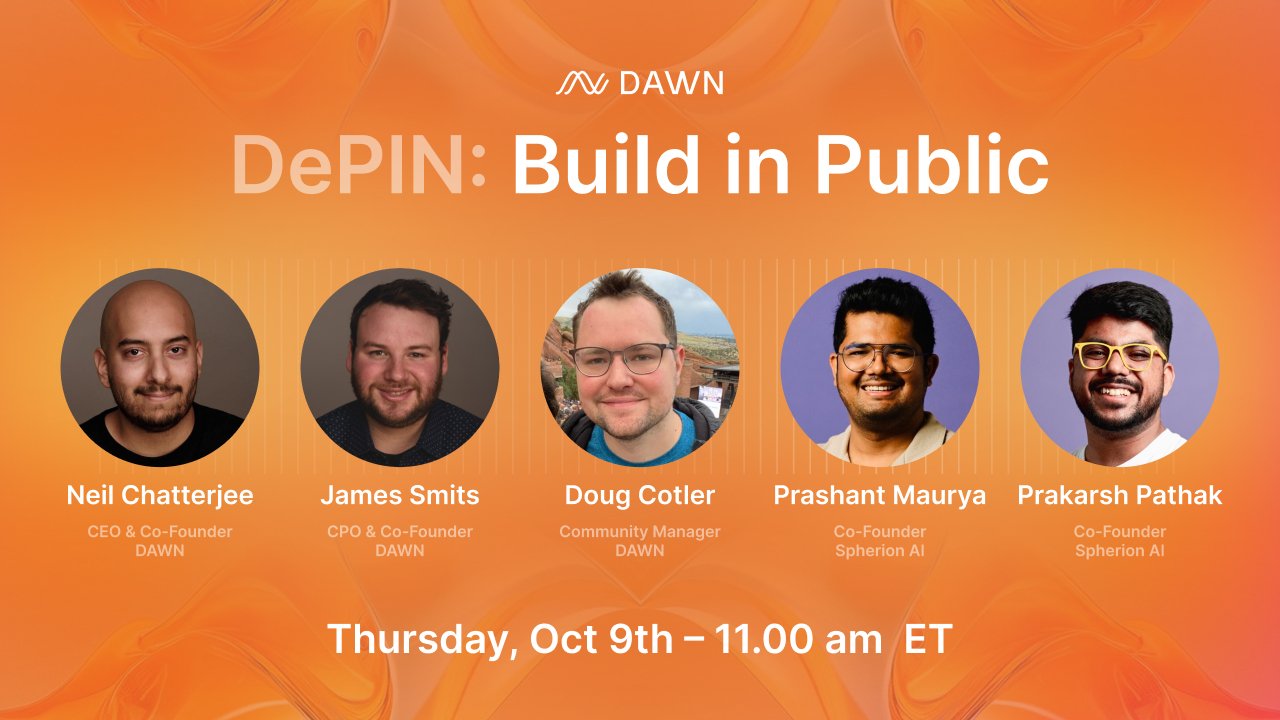
Community-Owned Internet Access: DAWN empowers users to become their own Internet providers, enabling households and businesses to share and access broadband independently of traditional ISPs. This fosters true community ownership and local control over connectivity.
-
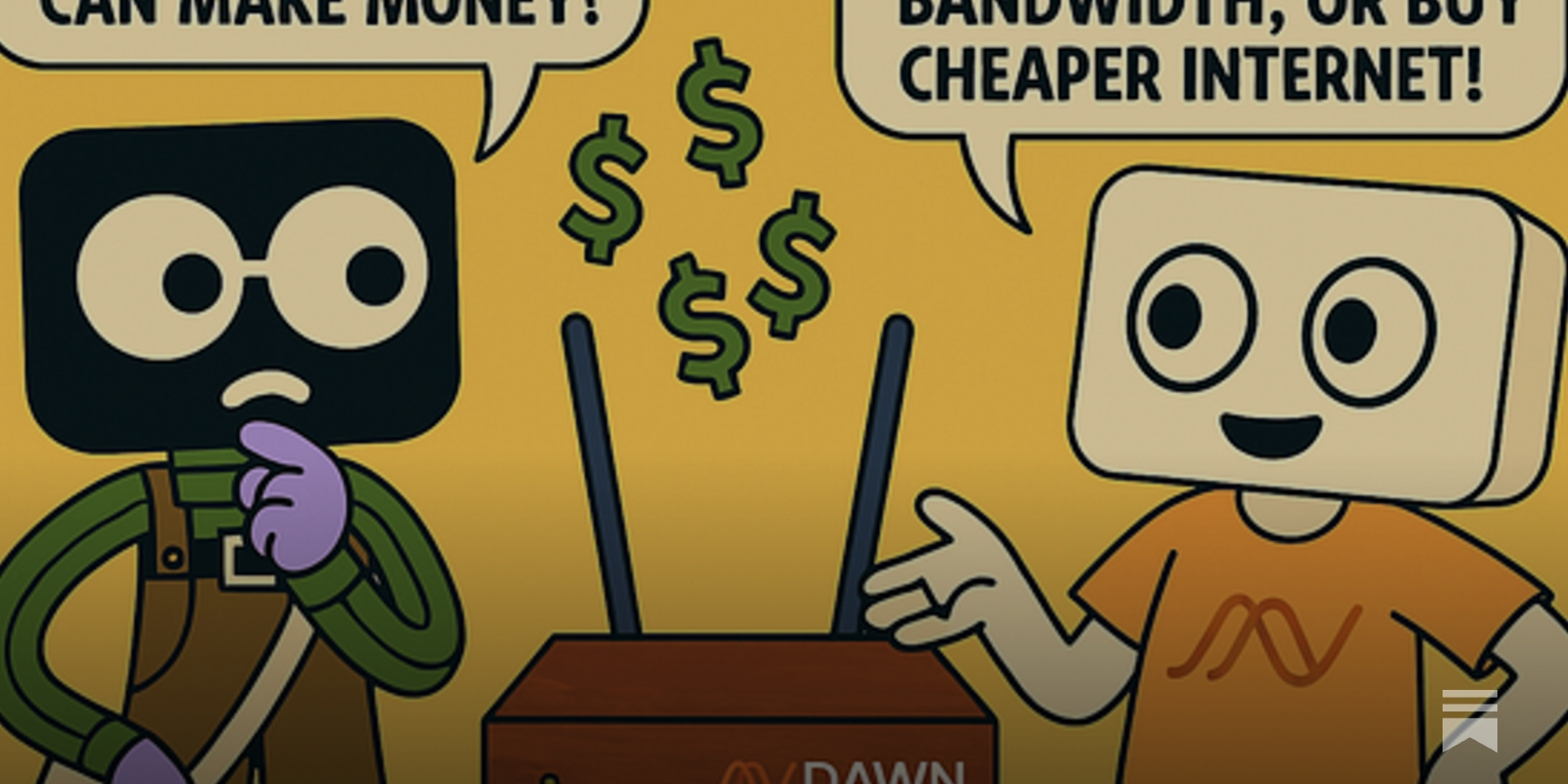
Affordability Through Bandwidth Sharing: By allowing users to share excess Internet capacity, DAWN helps drive down costs for both providers and consumers, making high-speed broadband more affordable and accessible.
-

Trustless, Reliable Connections: DAWN leverages a proof of backhaul mechanism on the Solana blockchain to verify node performance, ensuring users benefit from reliable and transparent Internet service without needing to trust a central authority.
-
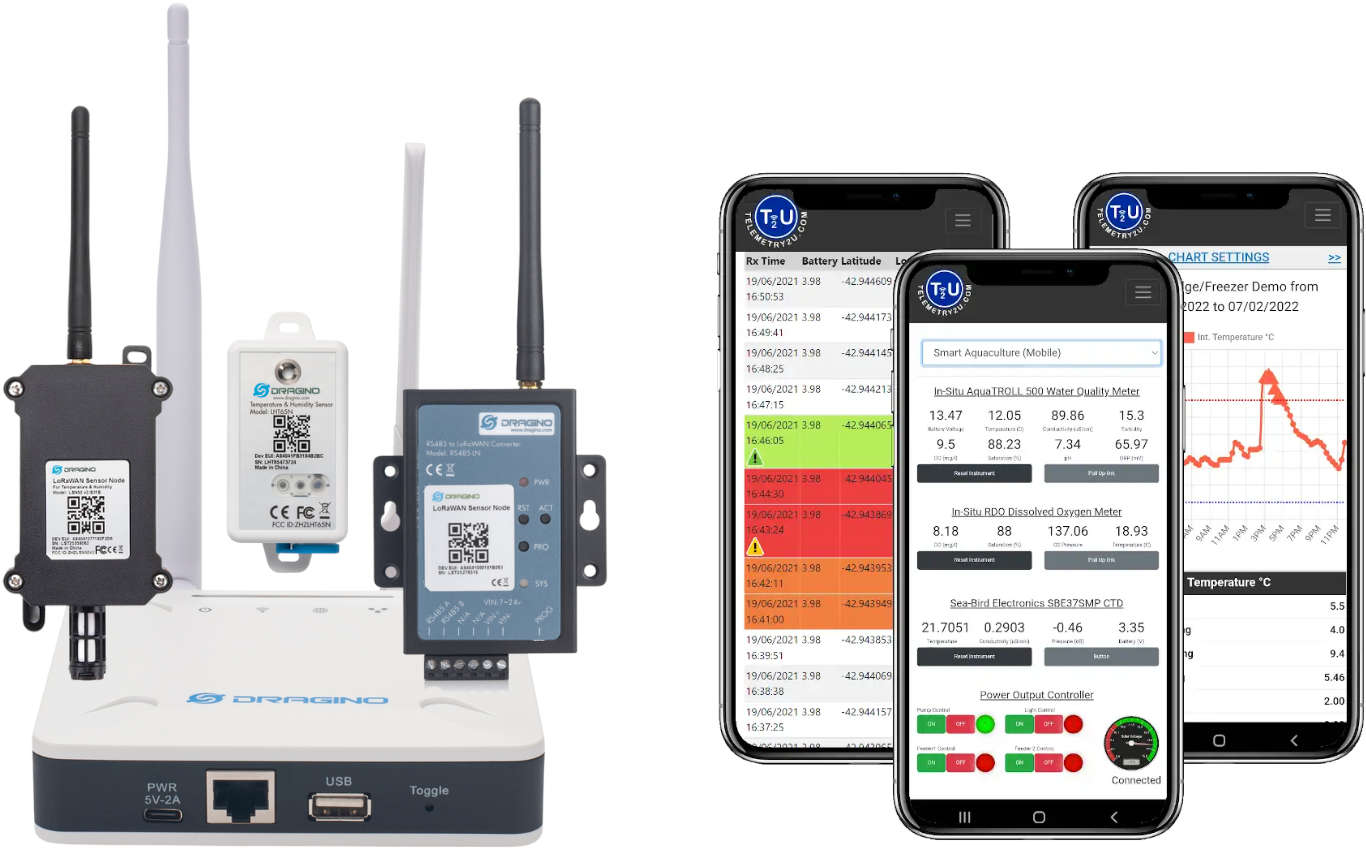
Integration with Helium Network: The partnership with Helium allows DAWN nodes to connect with Helium’s Hotspot network, expanding coverage and enabling seamless Internet access for Helium Mobile subscribers and DAWN users alike.
-
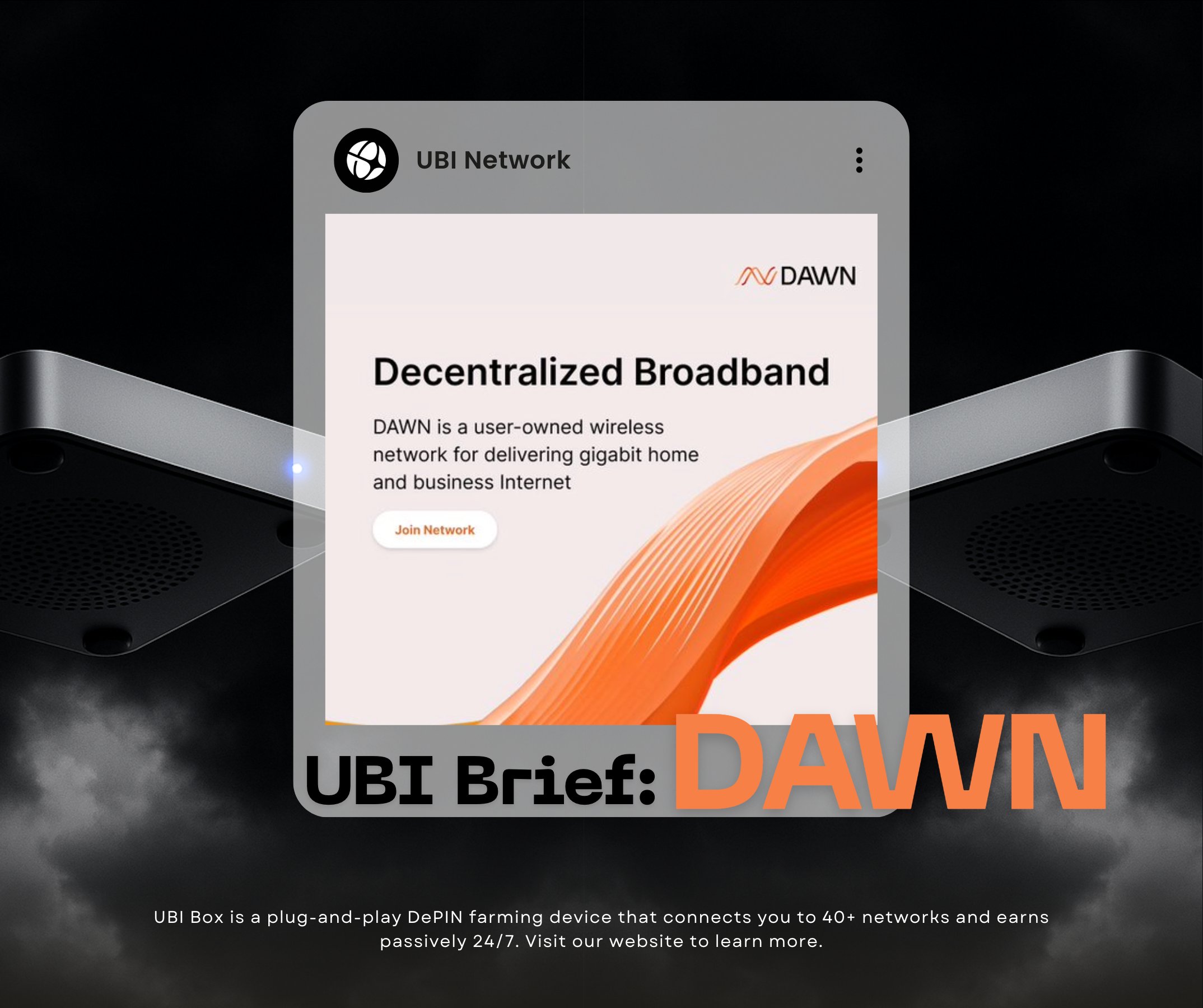
Incentives and Rewards for Participation: Users who contribute bandwidth and operate nodes can earn $DAWN tokens, creating a direct incentive to participate and support the network’s growth.
-
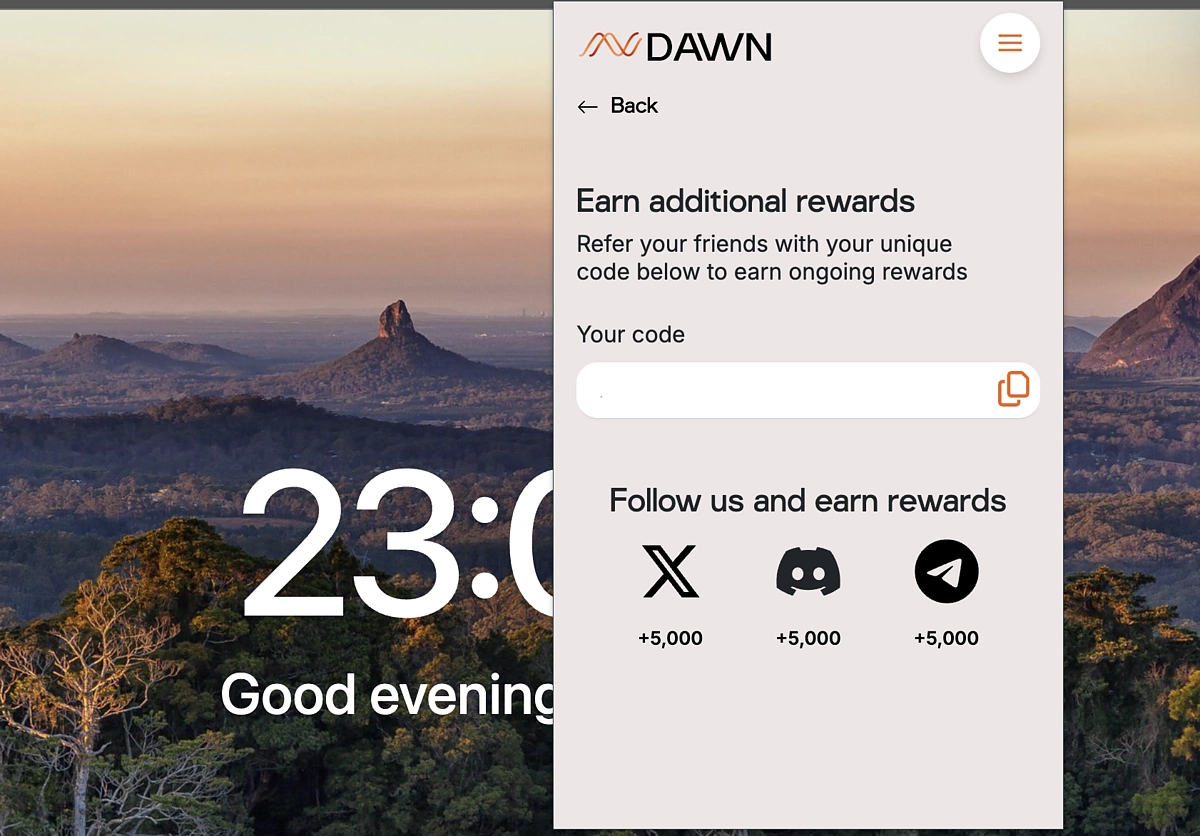
Scalable, Global Coverage: With over 3 million U.S. households expected to be covered at launch and plans for international expansion, DAWN’s model is designed for large-scale, decentralized deployment.
Solana DePIN: Fast, Transparent Incentives With $DAWN
DAWN’s choice to build on Solana is more than a technical preference, it’s a strategic decision rooted in performance and transparency. With Solana currently trading at $184.91 (as of October 18,2025), the ecosystem has proven its resilience and scalability in supporting real-world DePIN projects. Solana’s ultra-fast block times and low transaction fees enable DAWN to process bandwidth proofs and reward distributions nearly instantly, creating a seamless experience for both contributors and end users.
The $DAWN token is central to this incentive structure. By tokenizing bandwidth contributions and validator roles, DAWN aligns economic rewards with network growth and reliability. Upcoming presales and validator reward programs are expected to further accelerate adoption as the project moves toward mainnet. For those interested in deeper technical details or community updates, resources like this SolanaReport analysis provide comprehensive coverage of DAWN’s evolving ecosystem.
DAWN’s approach is not just about technology, but about fundamentally reimagining how connectivity is delivered and who benefits from it. By enabling households and small businesses to become community internet providers, DAWN puts the power of broadband access directly into the hands of users. This peer-to-peer broadband model stands in stark contrast to the centralized gatekeeping of legacy ISPs, offering a path toward more equitable, affordable, and resilient internet infrastructure.
The integration with Helium’s established mesh network gives DAWN a running start in terms of scale and reliability. With over 8,000 nodes already being brought into the Helium ecosystem, DAWN is rapidly building out coverage that reaches millions of American households. The roadmap for 2025 includes further expansion, both domestically and internationally, as DAWN aims to connect underserved communities where traditional broadband has failed to deliver.
Security and Reliability: Triple-Proof Verification at Scale
Security is paramount in any decentralized wireless infrastructure. DAWN’s triple-proof system, Proof-of-Backhaul, Proof-of-Location, and Proof-of-Frequency, ensures that only legitimate nodes with verifiable connectivity are rewarded. This minimizes the risk of spoofing or resource misreporting that could undermine trust in the network. Each proof is recorded transparently on Solana’s blockchain, enabling real-time auditing by anyone in the community.
This architecture also supports robust network resilience. If a node fails or its connection degrades, other nearby nodes can quickly compensate, ensuring uninterrupted service for end users. As more participants join the network and deploy Black Box devices, this redundancy only grows stronger, creating a self-healing mesh capable of adapting to local outages or spikes in demand.
How DAWN’s Black Box Empowers Users and Communities
-
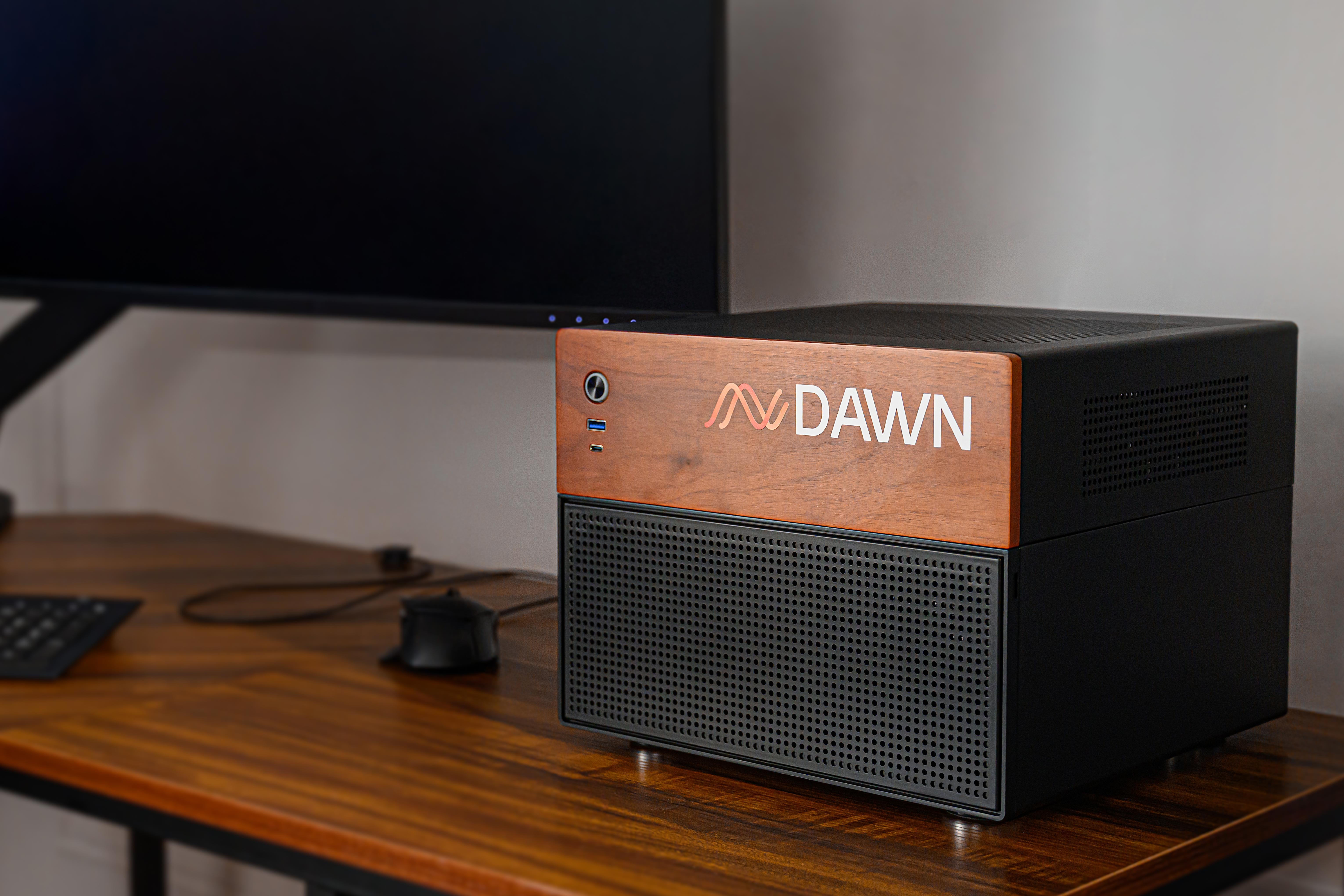
Earn Rewards by Sharing Bandwidth: The DAWN Black Box enables users to monetize their unused Internet bandwidth by connecting their device and participating in the DAWN network. Through proof of backhaul verification, users receive $DAWN tokens as rewards for contributing reliable connectivity.
-
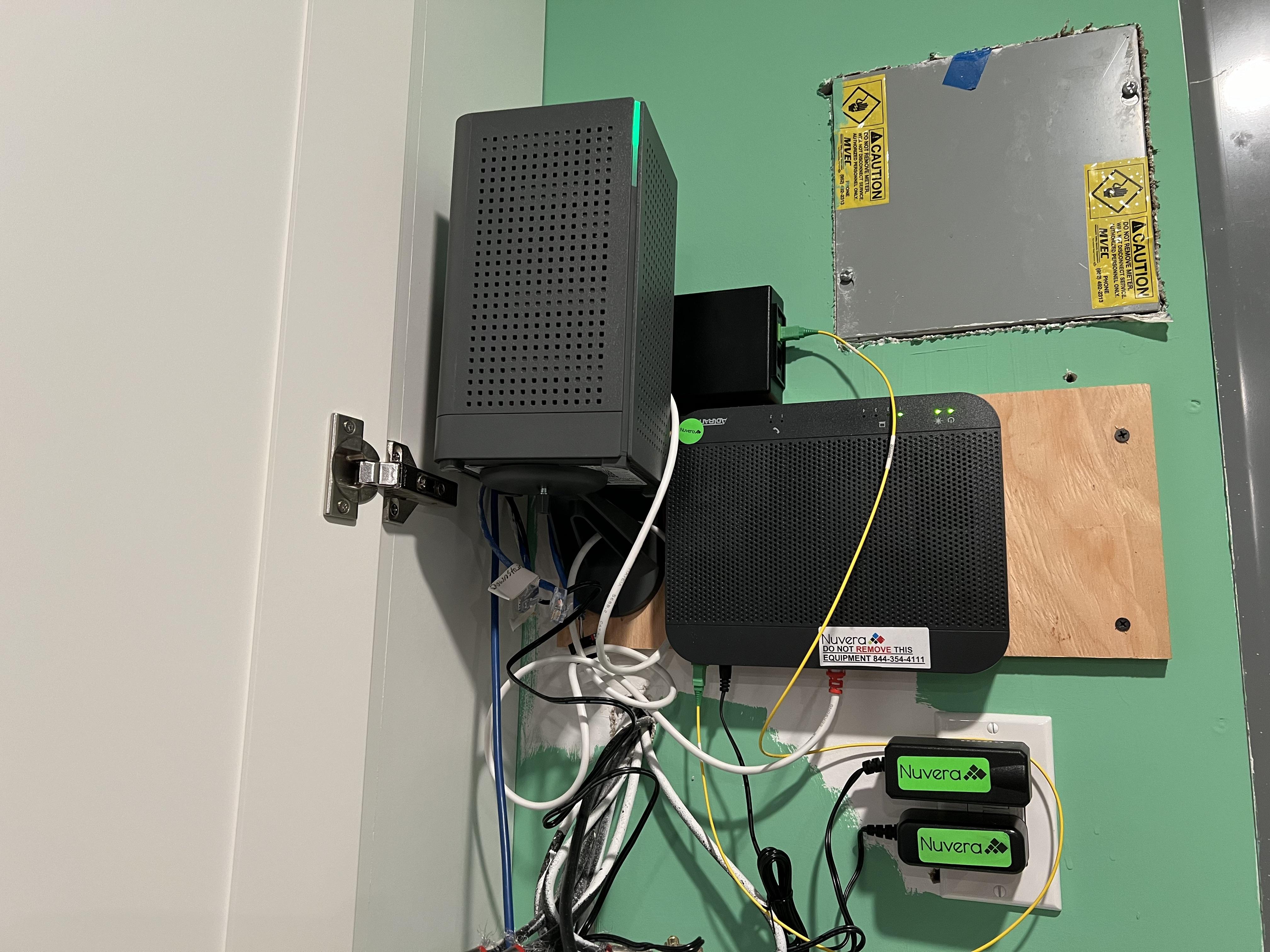
Support Local Connectivity and Bridge the Digital Divide: By deploying a DAWN Black Box, users help extend affordable broadband access to neighbors and local businesses. The device acts as a decentralized node, fostering community-owned Internet infrastructure and reducing reliance on traditional ISPs.
-
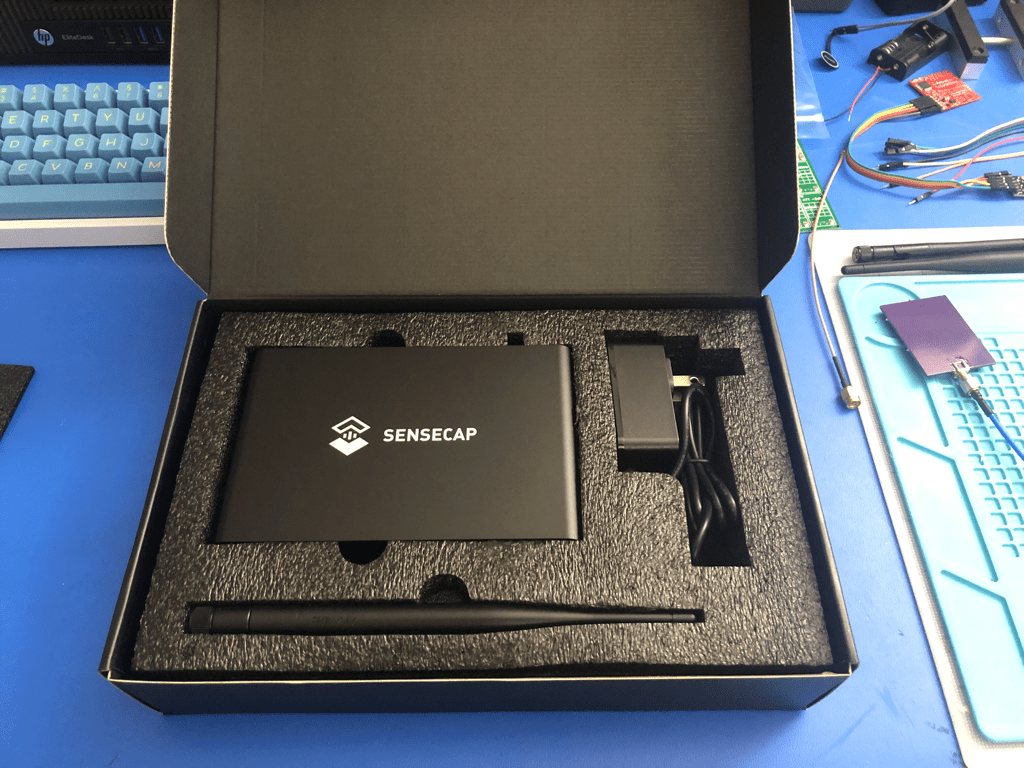
Seamless Integration with Helium Network: Thanks to DAWN’s partnership with Helium, Black Box devices are integrated into the Helium Hotspot ecosystem. This allows Helium Mobile subscribers to connect directly to DAWN-powered data centers, expanding coverage and interoperability for decentralized wireless networks.
-
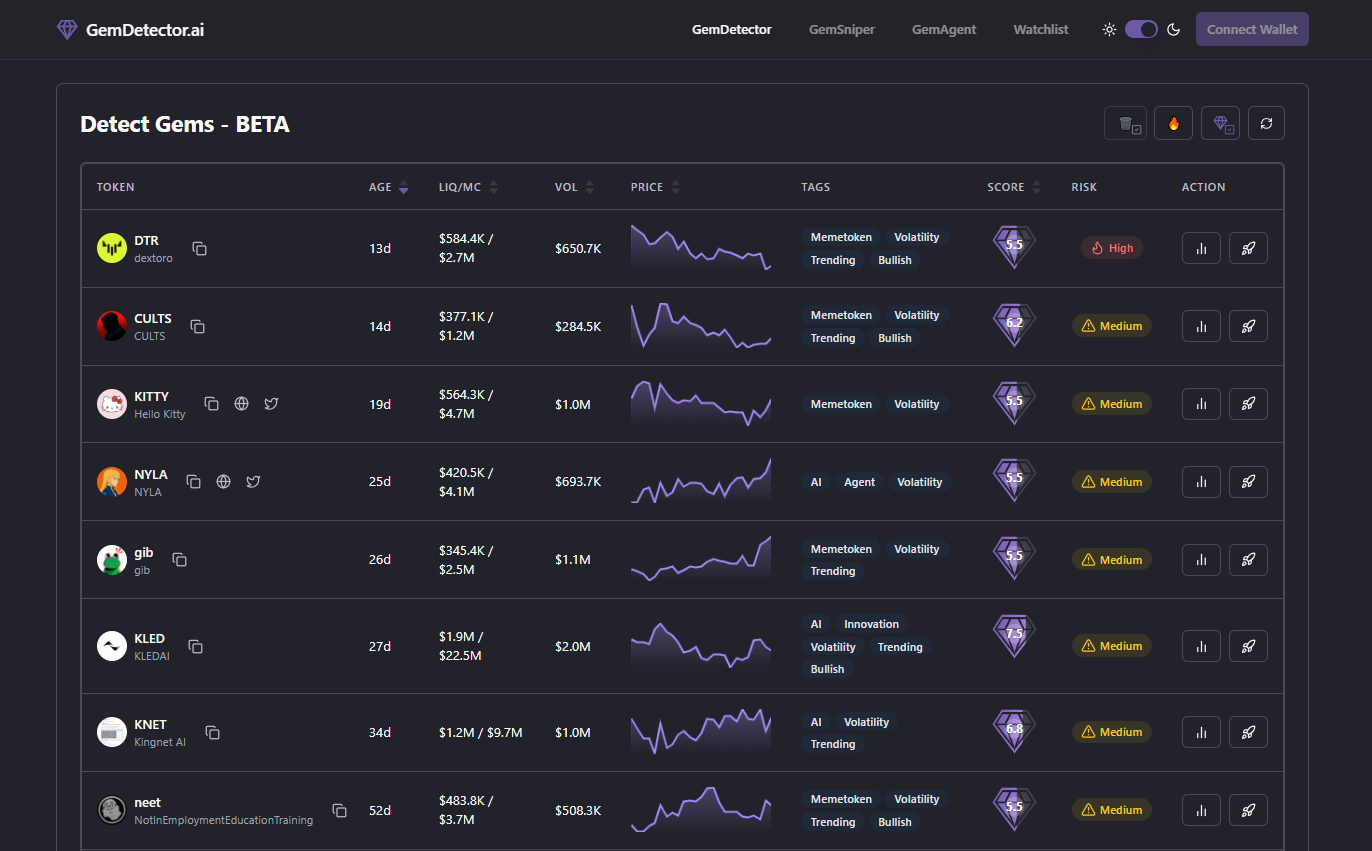
Trustless, Blockchain-Based Verification: The Black Box leverages the Solana blockchain to ensure all bandwidth contributions are transparently verified and rewarded. Smart contracts handle proof of backhaul, location, and frequency, providing a secure, trustless foundation for the network.
-

Contribute to a Growing Global Network: With over 8,000 nodes already integrated and plans to cover 3 million U.S. households at launch, Black Box owners play a vital role in expanding DAWN’s decentralized broadband footprint—both locally and worldwide.
A Sustainable Model: Tokenized Incentives for Real-World Impact
With Solana maintaining a price of $184.91, DAWN’s use of on-chain incentives is more than speculation, it’s about building a sustainable marketplace for bandwidth itself. The $DAWN token serves as both carrot and currency: rewarding those who share reliable bandwidth while providing frictionless payments for those who consume it. As validator programs launch and presales approach, early adopters have an opportunity to shape the network’s direction and governance.
The recent $18 million Series A extension led by Dragonfly underscores growing institutional confidence in DePIN Solana projects like DAWN. These funds are being used not only to accelerate node deployment but also to enhance protocol security and support global scaling efforts. With mainnet launch imminent, and coverage expected to reach over 3 million U. S. households, DAWN is positioned at the forefront of blockchain-powered broadband innovation.
What’s Next for Peer-to-Peer Broadband?
Looking ahead, DAWN plans to further integrate with other DePIN projects across Solana’s ecosystem, opening new avenues for cross-network collaboration and shared rewards models. The upcoming release of enhanced Black Box hardware promises even greater ease-of-use for non-technical participants, lowering barriers so that anyone with unused WiFi can contribute meaningfully.
The long-term vision remains clear: turn every idle router into an economic engine for its owner while collectively building a faster, fairer internet for all. For those interested in technical deep-dives or step-by-step guides on deploying their own node, resources like our detailed breakdown offer practical insights.
